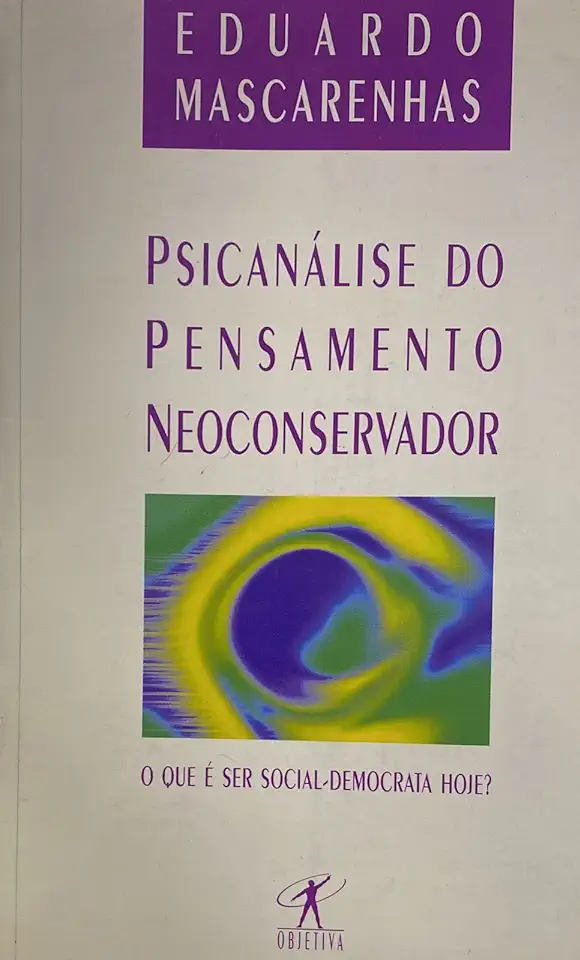
Psychoanalysis of Neoconservative Thought - Eduardo Mascarenhas
Psychoanalysis of Neoconservative Thought: A Deep Dive into the Unconscious Motivations of a Political Ideology
Introduction: Unraveling the Enigma of Neoconservatism
In the realm of political thought, few ideologies have sparked as much controversy and intrigue as neoconservatism. With its blend of traditional values, hawkish foreign policy, and unwavering support for free-market capitalism, neoconservatism has left an indelible mark on the political landscape. Yet, beneath the surface of its seemingly straightforward principles lies a complex web of unconscious motivations and psychological dynamics that have remained largely unexplored.
In his groundbreaking book, "Psychoanalysis of Neoconservative Thought," Eduardo Mascarenhas embarks on a fascinating journey into the depths of the neoconservative psyche. Drawing upon psychoanalytic theory and a wealth of historical and cultural analysis, Mascarenhas unveils the hidden desires, fears, and anxieties that drive neoconservative ideology.
Unmasking the Neoconservative Psyche: A Tapestry of Fear and Desire
At the heart of neoconservatism lies a profound fear of social and cultural change. Neoconservatives perceive the modern world as a chaotic and unpredictable place, where traditional values and institutions are under siege. This fear manifests itself in a longing for a simpler, more orderly past, where social hierarchies were clearly defined and individual freedoms were circumscribed by societal norms.
Paradoxically, this fear of change is intertwined with a desire for power and control. Neoconservatives seek to impose their vision of order on the world, often through military intervention and the suppression of dissent. This desire for control stems from a deep-seated sense of insecurity and a need for external validation.
The Neoconservative Personality: A Study in Authoritarianism and Rigidity
Mascarenhas delves into the psychological profile of neoconservatives, revealing a pattern of authoritarian tendencies, rigidity, and a lack of empathy. Neoconservatives tend to view the world in black-and-white terms, with little tolerance for ambiguity or compromise. They are often drawn to simplistic solutions and quick fixes, even when these solutions have far-reaching and potentially disastrous consequences.
This rigidity of thought is often accompanied by a lack of empathy for those who hold different views or belong to marginalized groups. Neoconservatives tend to view dissent as a threat to their worldview and are quick to dismiss or demonize those who challenge their beliefs.
The Neoconservative Agenda: A Reflection of Unconscious Desires
The neoconservative agenda, with its emphasis on traditional values, military strength, and economic dominance, is a direct reflection of the unconscious desires and fears that drive neoconservative ideology.
The emphasis on traditional values serves to reinforce the social hierarchy and maintain the status quo, providing a sense of security and belonging for those who feel threatened by social change. The focus on military strength is a manifestation of the desire for power and control, while the promotion of economic dominance reflects the neoconservative belief in the superiority of their own economic system.
Conclusion: A Call for Understanding and Dialogue
Mascarenhas' "Psychoanalysis of Neoconservative Thought" is a tour de force that offers a profound understanding of one of the most influential political ideologies of our time. By exposing the unconscious motivations and psychological dynamics that drive neoconservatism, Mascarenhas challenges us to confront our own fears and desires and to engage in a more nuanced and empathetic dialogue about the future of our societies.
This book is a must-read for anyone interested in political psychology, the history of ideas, or the complex interplay between the conscious and unconscious mind. It is a powerful reminder that our political beliefs are not simply rational choices, but are deeply rooted in our emotional and psychological makeup.
Don't miss this opportunity to delve into the depths of neoconservative thought and gain a deeper understanding of the forces that shape our political landscape. Order your copy of "Psychoanalysis of Neoconservative Thought" today!